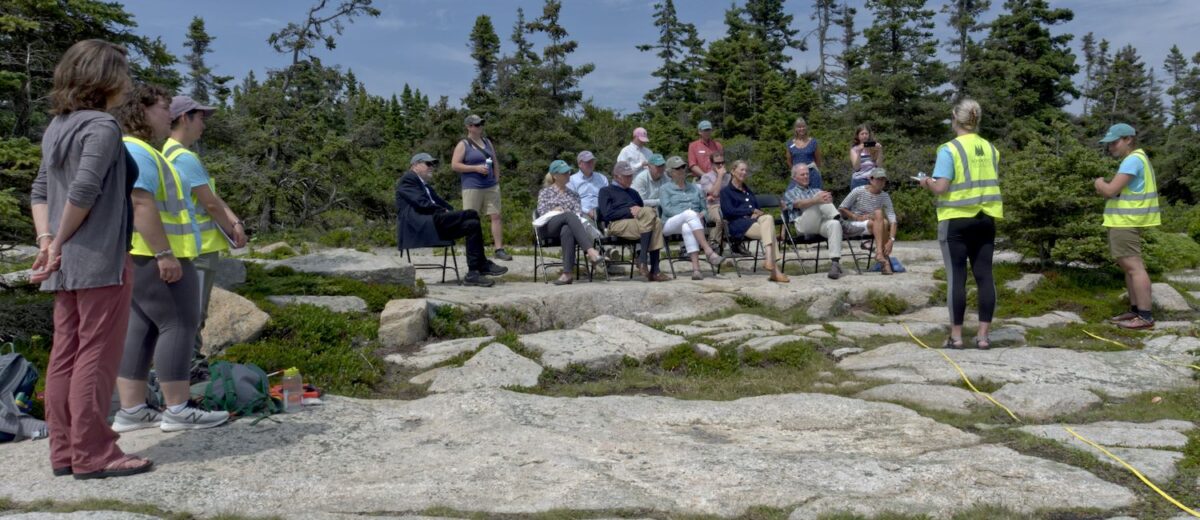Through the generous support of Catherine and James Gero, the National Park Service, Schoodic Institute, and the National Park Foundation announce a new fellowship opportunity to support early-career experiences in Acadia National Park. We will support three 10-month fellowships beginning in summer 2022:
- Science Research Fellow: 1 position, June 2022 – March 2023
- Environmental Science Education Fellow: 1 position, mid-August 2022 – mid-June 2023
- Science Communication Fellow: 1 position, June 2022 – March 2023
The integration of research, education, and communication is critical to the stewardship efforts in Acadia. The complex challenges of rapid environmental change demand that the next generation of professionals have the necessary skills to span disciplinary boundaries, work with a diversity of stakeholders, and integrate science into decision making. The Acadia Early-Career Fellowship will span the college-to-career gap in conservation fields, engage learners of all ages in science, and advance science to inform park stewardship. Together, this cadre of early-career professionals will work alongside National Park Service and Schoodic Institute scientists, educators, communicators, and resource managers in Acadia National Park and surrounding areas. These highly competitive fellowships are intended for motivated, early- career individuals (within three years of earning a Bachelor’s degree) seeking a springboard experience for their careers working at the intersection of conservation, scientific research,
education, and communication.
The Science Research Fellow will engage in field efforts for management-focused research across Acadia, such as restoring degraded habitats on mountain summits, monitoring declining bird populations, assessing intertidal biodiversity, removing invasive plant species, and engaging park visitors in science learning. Based on ongoing research priorities and the fellow’s interests, the fellow will take the lead on a project, including field data collection, data analysis, and synthesis. The fellow’s research will directly inform management decisions to steward park resources. The Science Fellow will assist the Education Fellow with incorporating this research into science curricula and leading learning experiences with students. This fellow will also work closely with the Science Communication Fellow to share the science stories of Acadia with a diversity of audiences.
The Environmental Science Education Fellow will develop and teach lessons as a part of the Schoodic Education Adventure (SEA) residential education program, helping to develop both the STEM and emotional learning portions of the curriculum for 5th through 8th grade students. The Education Fellow will lead in-person and virtual education programs. The fellow will assist the Science Fellow with conducting field research and then incorporating this research into learning experiences. This fellow will also work closely with the Science Communication Fellow to share science stories of Acadia.
The Science Communication Fellow will work with communication experts in the park to tell the compelling stories of science in Acadia to a range of audiences through in-person, written, and video platforms. Specific story topics will be developed in coordination with communications staff and the fellow’s interests and abilities. The Communication Fellow will work closely in the field and classroom with the Science and Education Fellows, contributing to research and education and helping these fellows tell their stories of science in Acadia to a diversity of audiences.
All three fellows will share their experiences during a special session of the Acadia Science Symposium.
